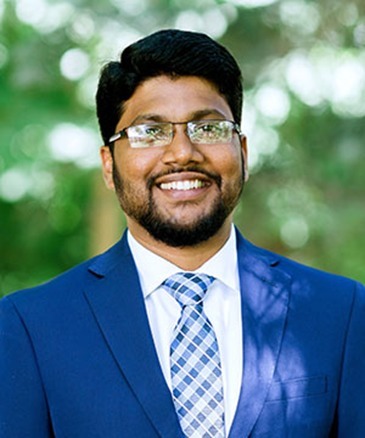
Photo/the University of Rochester
On November 7, 2023, the prestigious scientific journal Nature announced the retraction of a paper on "room-temperature superconductivity" published by the research team of Ranga Dias of the University of Rochester in the United States in March 2023.
This decision once again placed physicist Dias in the spotlight. In the retracted paper, Dias's team claimed to have developed a new material that could achieve superconductivity at room temperature. The material is composed of hydrogen, nitrogen, and lanthanum, which exhibits superconductivity at room temperature of about 69 degrees Fahrenheit (about 20.6 degrees Celsius) and a pressure of 10 kilopascals (10,000 times atmospheric pressure).
Because the substance turns red when squeezed, Dias named it redmatter. "With this new material, the dawn of room-temperature superconductivity and application technology is here," he said at the time. The publication of the paper caused a great stir in the academic world.
According to the retraction notice published by Nature, the paper was withdrawn at the request of eight co-authors of the paper. The eight co-authors told Nature editors that "Dr. Dias did not demonstrate a sincere attitude in the preparation and submission of the manuscript."
In addition, according to a report on Nature's website, the University of Rochester confirmed to the journal that the school has launched an investigation into the integrity of Dias's work by external experts.
In response, Dias's team sent a statement to NBD on November 10, showing that Nature had learned that three of the authors, including Dias himself, did not agree to withdraw the paper. Dias also denied the allegations of the eight co-authors, saying that the scientific findings in the retracted paper are the basis of the doctoral dissertations of those eight co-authors.
In the statement, Dias denied all allegations of research misconduct and firmly supported all scientific conclusions put forward in the paper. He also provided a comprehensive rebuttal to Nature.
When asked by NBD about the specific details of the investigation by the University of Rochester, Dias declined to comment.
It is worth noting that this is the second paper on room-temperature superconductivity signed by Dias to be retracted by Nature in 14 months, and the third time to be retracted by a top academic journal.
According to the website of the Hakim School of Engineering and Applied Sciences at the University of Rochester, Dias is an internationally recognized scientist in the field of high-pressure physics. He was born in Sri Lanka, and received his bachelor's degree from the University of Colombo in 2006 and his doctorate in physics from Washington State University in 2013. Before joining the University of Rochester, he conducted postdoctoral research in the Department of Physics at Harvard University, studying the quantum phenomena of hydrogen under extreme conditions.
In October 2020, Dias's team had published another paper on room-temperature superconductivity in Nature, but in September 2022, Nature editors, despite the objections of Dias and his co-authors, ultimately retracted the paper, citing research misconduct in data processing, which undermined their confidence in the findings.
In August 2023, Dias's 2021 paper describing the electrical properties of manganese sulfide was retracted by Physical Review Letters, mainly due to questions raised by James Hamlin, a professor of physics at the University of Florida, who said that a curve in a figure describing the resistance of manganese sulfide in the paper was similar to a chart describing the behavior of another material in Dias's doctoral dissertation.
In the 10 years since he graduated from graduate school, Dias has repeatedly become the focus of media attention for his sensational room-temperature superconductivity research and the retraction of his papers. Whether his findings are a breakthrough in academia or academic deception may still need to be tested over time. In the statement to NBD, Dias's team said it plans to resubmit the paper to a journal with a more independent editorial process in the coming months, and the list of co-authors will be different at that time.


 川公网安备 51019002001991号
川公网安备 51019002001991号





